EQUS seminar series: Magdalena Zych
Speaker: Magdalena Zych
Title: Relativistic quantum clocks – from testing quantum features of time and causality to nascent quantum sensors
Abstract: A major goal of modern physics is to understand and test the regime where quantum mechanics and general relativity both play a role. Until recently, new effects of this regime were thought to be relevant only at high energies or in strong gravitational fields – beyond the reach of present day experiments. However, rapid progress in experimental techniques allows for quantum experiments over increasing time and distance scales: in separate experiments quantum coherence has been observed with molecules comprising thousands of atoms, across distances of nearly half-a-metre, and for over 20 seconds. I will discuss how nascent table-top quantum experiments can finally allow us to test the interplay between quantum theory and relativistic gravity, and even gain insights about quantum nature of gravity itself. I will in particular focus on the notions of time and causality which are considered to be key for understanding quantum gravitational regime. The crucial insight is that in general relativity time requires an operational description, for example, associated with an idealised clock, while in quantum physics idealised clocks can be modelled as composite quantum particles (such as atoms, ions or molecules). I will show what new insights into the notion of time and causality arise from studying quantum clocks at the interface with general relativity and how they may be used to probe the interface between quantum and gravitational physics. Finally, I will show that surprisingly even very weak relativistic gravity effects will become relevant for next-generation high-precision quantum technologies such as atomic clocks – and our foundational insights can lead to more accurate quantum technologies of the future.
[1] Zych, M., Costa, F., Pikovski, I. & Brukner, Č. Nat. Commun. 2:505 (2011)
[2] Zych, M., Costa, F., Pikovski, I., Ralph, T. C. & Brukner, Č, Class. Quant. Gravity 29:224010 (2012)
[3] Pikovski, I., Zych, M., Costa, F. & Brukner, Č. Nat. Phys. 11:668–672 (2015)
[4] Zych, M. & Brukner, Č. Nat. Phys. 14:1027–1031 (2018)
[5] Altamirano, N. et al. Class. Quant. Gravity 35:145005 (2018)
[6] Zych, M., Costa, F., Pikovski, I. & Brukner, Č. Nat. Commun. 10:3772 (2019)
[7] Loriani, S. et al. Sci. Adv. 5:eaax8966 (2019)
[8] Wood, C. E. & Zych, M. Phys. Rev. Res. 3:013049 (2021)
Bio: Magdalena is an EQUS Chief Investigator at the University of Queensland. She hopes to advance basic knowledge of the field, develop the first experiments to test unexplored physical regimes and initiate crucial developments for high-precision metrology with quantum systems, such as atomic clocks.
Recordings of past seminars are available to EQUS members via the Hub (requires login).
Major funding support

The Australian Research Council Centre of Excellence for Engineered Quantum Systems (EQUS) acknowledges the Traditional Owners of Country throughout Australia and their continuing connection to lands, waters and communities. We pay our respects to Aboriginal and Torres Strait Islander cultures and to Elders past and present.


